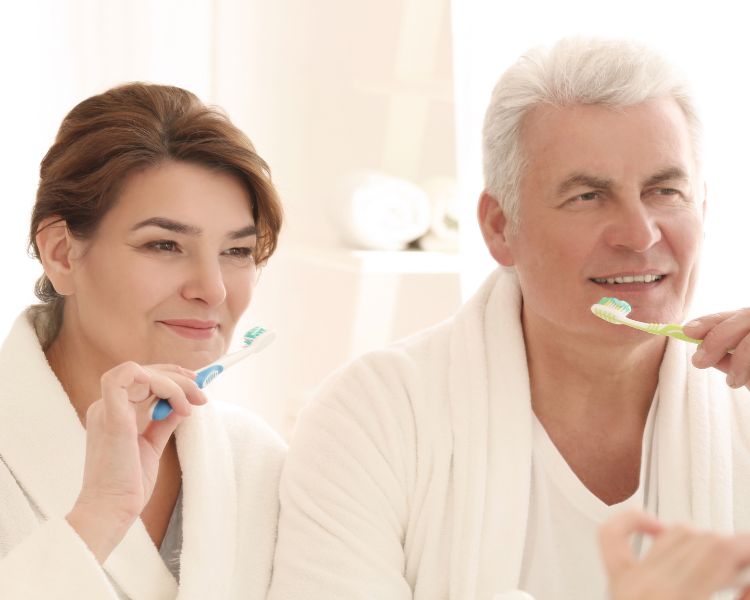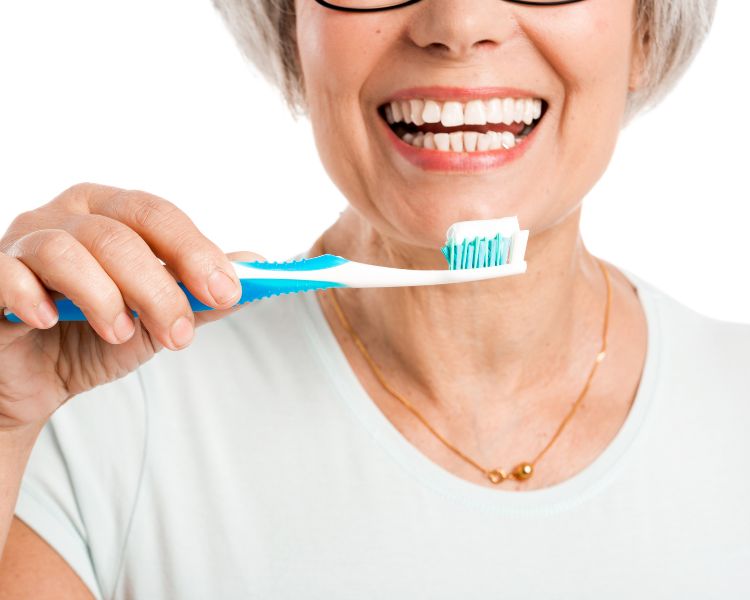As we age, oral health becomes more critical than ever. The right dental care can not only prevent tooth loss but also impact our overall well-being. For the geriatric community, selecting the correct toothbrush—most notably, the bristle type—is a pivotal decision that may be the difference between maintaining a healthy smile and escalating dental issues.
In this comprehensive exploration of bristle types’ influence on oral health for the elderly, we will break down how decisions that seem small can make a substantive difference in health outcomes.
We will also venture into techniques and best practices for brushing, and common dental problems in this demographic, and suggest strategies for promoting oral health in elderly care facilities.

The Significance of Toothbrush Bristles
When it comes to oral health, toothbrush bristles are not a one-size-fits-all affair. There are different types of bristles available, and each has unique benefits and considerations, especially for the elderly.
Soft Bristles: A Kind Option for Sensitive Gums
For many seniors, particularly those with decreased dexterity or enhanced gum sensitivity, soft bristles are often recommended. They are gentle on gums, making them less likely to cause damage or irritation.
Medium Bristles: Striking the Right Balance
Elderly individuals with a mix of relatively good oral health and dexterity might find medium bristles to be sufficient. They offer a balanced approach, effectively removing plaque without being overly harsh.
Hard Bristles: Not Always the Best Fit
In most instances, hard bristles are discouraged, especially for older adults whose gums have naturally receded, exposing more teeth, which are softer than enamel and more prone to damage.
The Link Between Gum Health and Toothbrush Bristle Strength
The relationship between gum health and the strength of toothbrush bristles is crucial, particularly in the elderly population. The gums serve as the foundational support for teeth, and as such, maintaining their health is vital. With age, gums can become more susceptible to damage or disease, which peels back the protective layer over the roots of the teeth and can lead to increased sensitivity and potential for decay.
Therefore, choosing a toothbrush with the appropriate bristle strength is essential; if too stiff, the bristles can wear down the gum line, too soft, they might not provide adequate plaque removal. Optimizing bristle strength is therefore a balancing act, ensuring effective cleaning while minimizing the risk of causing harm to the delicate gum tissue.
Choosing the Right Toothbrush
The selection of a toothbrush is highly personal. While there isn’t a one-brush-fits-all, there are some general rules of thumb that can guide you or your loved one in choosing the perfect tool for maintaining oral hygiene.
Handle Size and Shape Matter
For those with arthritis or other mobility issues, a toothbrush with a larger handle can offer a better grip. Additionally, an electric toothbrush with a larger, wider base might be easier to handle.
Powered vs. Manual: The Great Debate
Research suggests that powered toothbrushes can be more effective at plaque removal, making them an attractive option for individuals who may have limitations in maneuvering a manual brush.
Techniques for Proper Brushing
The brushing technique is as important as the toothbrush itself when it comes to dental care. For the elderly, especially those who may start to experience cognitive decline, a simple and effective brushing routine is essential.
Gentle Circular Motions
Encourage using gentle, circular motions to ensure plaque and food debris are lifted from the mouth without damaging the gums.
Don’t Forget the Tongue and Roof of the Mouth
Brushing these areas is crucial, as they are common hiding spots for bacteria and can lead to bad breath or other oral issues.
Common Dental Issues in the Elderly
Understanding the potential issues that may arise can help in preventing and addressing these problems effectively.
Gum Recession
Often a natural part of the aging process, gum recession can expose the softer root of the tooth, leading to increased sensitivity and erosion if not addressed directly.
Tooth Decay
With age comes a greater tendency for dry mouth, which reduces saliva and its protective properties, potentially leading to an increase in tooth decay.
Periodontal Disease
If left untreated, this inflammatory condition can lead to tooth loss and has been linked to other systemic ailments, making prevention and maintenance critical.

Maintaining Oral Hygiene Routine: Tips for Seniors
Maintaining an effective oral hygiene routine is paramount for seniors to prevent the issues outlined earlier. Here are some tips to help establish and preserve good dental habits:
Consistency Is Key
Emphasize the importance of brushing twice a day and flossing daily. Establishing a consistent routine is vital for long-term oral health.
Regular Dental Checkups
Encourage routine dental visits for professional cleanings and checkups. These appointments can catch problems early on and provide professional guidance tailored to individual needs.
Hydration Helps
Staying well-hydrated is beneficial in combating dry mouth, which is a common concern for the elderly. Drinking water throughout the day can help maintain saliva levels and protect against tooth decay.
Consider Diet and Nutrition
A nutritious diet that limits sugary snacks and acidic foods can help protect against tooth decay and gum disease. Foods high in calcium and phosphorus can promote tooth demineralization.
Customized Oral Care Tools
For seniors with unique dental concerns, specialized dental care products like interdental brushes, floss holders, and water flossers can provide additional support tailored to their needs.
By integrating these practices into their daily routine, seniors can greatly enhance their oral hygiene, helping to keep their teeth and gums healthy well into their later years.
A study by the Centers for Disease Control and Prevention (CDC) highlights the significance of oral health among older Americans. According to their findings, about 2 in 3 (68%) seniors aged 65 years and older suffer from gum disease. This statistic underscores the critical need for appropriate oral hygiene practices in this demographic to prevent periodontal disease and maintain overall health. For more information, visit the CDC’s official website.
Expert Recommendations: What Dentists Say About Seniors and Toothbrush Bristles
Dental professionals emphasize the need for gentler dental care as individuals age. Many recommend soft-bristled toothbrushes to their senior patients to minimize aggravation to the gums and prevent dental abrasion. Moreover, dentists often advise against the use of toothbrushes labeled as “firm” or “hard,” as these can contribute to receding gums and enamel wear over time, particularly in seniors. Regular dental checkups are also crucial, as these visits allow for professional cleaning and the opportunity to address any issues early on.
By adhering to these expert recommendations, the elderly population can vastly improve their dental care routine, ensuring they preserve their oral health and overall quality of life as they age.
Conclusion
The choice of toothbrush and maintaining a proper brushing technique is an integral part of overall dental care, particularly for the elderly. By paying close attention to these seemingly small details, such as toothbrush bristle type, we can ensure that our elderly loved ones enjoy better oral health, improving their quality of life and well-being. As a society, we must continue to prioritize oral health and the factors that play a role in sustaining it, understanding that every smile, no matter the age, deserves to be healthy and vibrant.
For our South Florida readers, we warmly invite you to experience first-rate dental care with a personal touch at Santos Medical Centers. Take a tour and see for yourself our state-of-the-art equipment and skilled team of dental professionals dedicated to your oral health. Come and learn how our compassionate dentists can tailor your dental care to fit your unique needs.
Your journey to a brighter, healthier smile begins with us— schedule your visit today!

